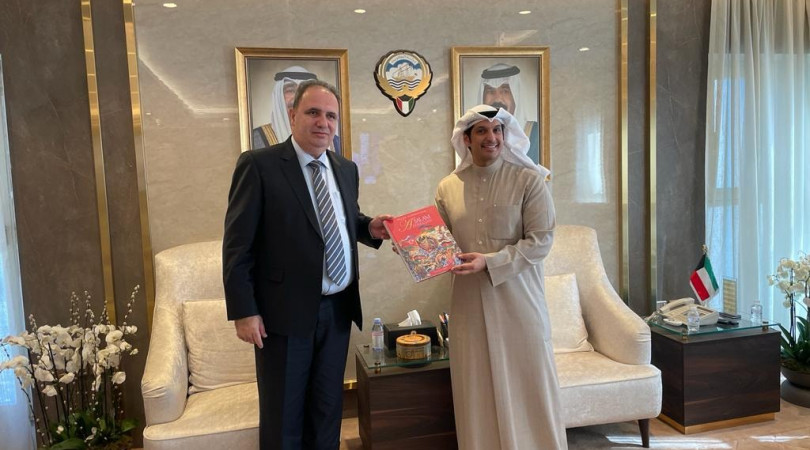Philosophical visions, the themes of ‘religion’ and ‘prophet’ in the poems of the great medieval Azerbaijani poet and thinker Sheikh Nizami Ganjavi (1141-1209)
The love is the altar of the high heavens
Without love, O world, what is your sense?
If there was no love in the soul of generation,
Life would not wrap the whole creation
The word has a charm like water
To say less every word it is better
Even if in water there is a pearl purity
Too much could be harmful to your healthy
In connection with the 880th anniversary of the great medieval poet and thinker of Azerbaijan, Nizami Ganjavi, the year 2021 has been declared in the Republic of Azerbaijan as the ‘Year of Nizami Ganjavi’ by the order of President Ilham Aliyev. This year, a number of cultural events have been organized in the country and abroad. The year 1991 was also declared the ‘Year of Nizami’ by UNESCO in honor of the 850th anniversary of the poet.
The poet’s real name was Ilyas, his father’s name was Yusuf, and his grandfather’s name was Zaki: after the birth of his son Muhammad, his name was changed to the poet’s full name, and his full name was Abu Muhammad Ilyas ibn Yusif ibn Zaki Muayyad.
Nizami’s works are well acquainted with in the oral and written traditions of Arabic and Persian literature, mathematics, astronomy, astrology, chemistry, medicine, botany, theology, interpretation of the Qur’an, sharia, Christianity, Judaism, Iranian myths and shows good knowledge of legends, history, ethics, philosophy, esotericism, music and fine arts.
Nizami lived all his life in Ganja city of Azerbaijan and wrote his poems in Persian, which was the language of poetry at that time. With his five immortal poems called ‘Khamsa’ (The Treasure of Secrets, Khosrov and Sheren, Leyli and Majnun, Seven Beauties, and Iskandername) he brought a completely new poetic voice and breath to world literature. Due to the works of Nizami and other artists published during that time, the XII-XVI centuries are considered the peak or renaissance of Azerbaijani literature.
The highest criteria of personality For Nizami Ganjavi was humanism. Among the heroes of the poet, who resolutely rejected racial, national and religious discrimination, we meet representatives of other nations like Turks, Persians, Arabs, Chinese, Indians, Africans, Greeks, and Georgians. The humanist poet does not oppose the national or religious views of any of these heroes of different religions. Its heroes fight for justice, people’s happiness and high goals. Respect for human personality and human labor is one of the leading themes of the poet’s work.
Nizami Ganjavi’s work had a strong influence on the development of literature of the peoples of the Caucasus and the Middle East (Persian, Tajik, Indian, Afghan, Kurdish, Turkmen, Uzbek, Kazakh, Kyrgyz, etc.) and entered the treasury of world culture.
Nizami Ganjavi’s poems and verses have been translated into many languages of the world. Rare manuscripts of his works are preserved as precious pearls in the funds of famous libraries, museums and manuscripts of many cities (Moscow, New York, St. Petersburg, Baku, Tashkent, Tabriz, Tehran, Cairo, Istanbul, Delhi, London, Paris, etc.).
The theme of religion and prophet is of special importance in the poet’s work. He begins all his poems with the name of God Almighty, dedicating tawheed, minajat, medh, naat (gassida), merajname (types of East poetry) to God and his last prophet.
N.Ganjavi had a monotheistic worldview, as in the religious and philosophical teachings of the ancient Azerbaijanis-turks (Tengrism), and in all cases denied the dualist, polytheistic systems.
Throughout his life, Nizami prayed to God to make him thankful. Nizami’s gratitude cannot be sought only in places where he uses the word “thanks to God”. The places where Nizami did not use this word in his works were also filled with gratitude. Thus, all of Nizami’s applause to God, tawheeds, minajats (appeals), and praises to the Prophet Muhammad (s.a.s) were all thanks. The heroes in the poet’s works often turn to God, praise, thank and pray to God, and ask for help from the Creator.
Undoubtedly, Prophet Muhammad (s.a.s) is one of the historical figures whom the poet praises with all his heart and soul in the ‘Treasury of Mysteries’, the first masnavi (poem) of ‘Khamsa. Azerbaijani academician Teymur Karimli’s observations about the place and role of the image of the Prophet of Islam in Nizami’s work are interesting. He writes: “For Nizami, like other medieval poets, the principles of Islam were a program of action in both public and private life. In particular, the life and work of the Prophet of Islam was an ideal, an example, a source of imitation for Nizami. In his poems, the Prophet Muhammad (s.a.s) does not appear as a specific historical figure, but as the most ideal person of all times and peoples”.
Dedicating six chapters to the Prophet of Islam in the ‘Treasure of Mysteries’, which consists of didactic stories, Poet calls himself “a nightingale who sings for his flower.” It is known that the ‘flower’ is also a metaphor for Islam.
The poet also benefited from the historical facts about the life of the prophet, and did not spare the power of his poetic talent in using each event to reveal the individual features of the character of this saint:

















